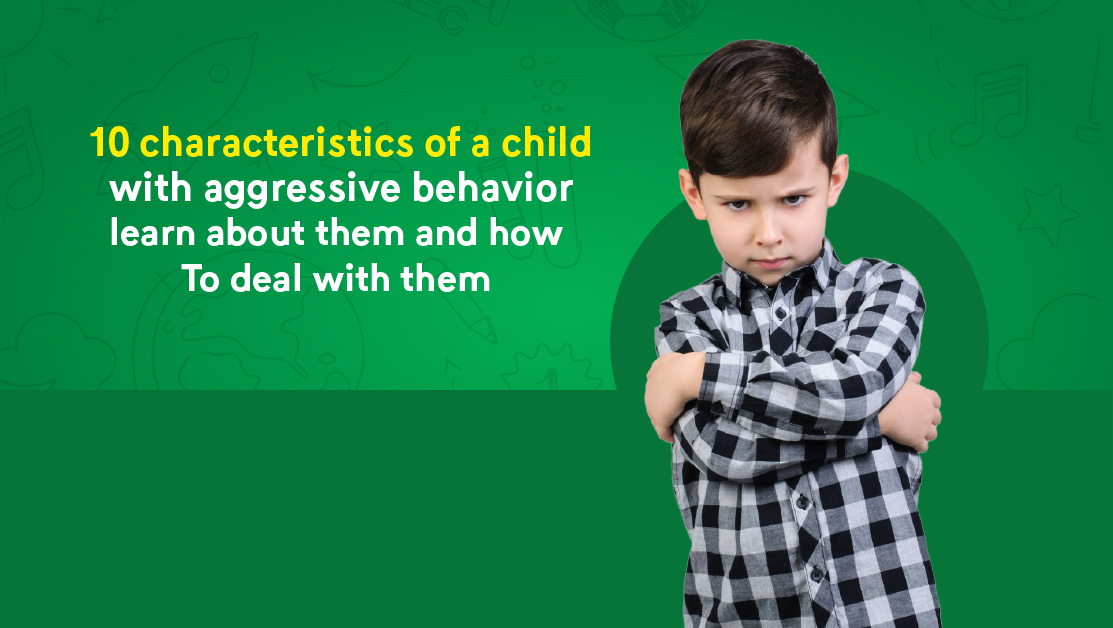
Are you a parent or caregiver to a child with aggressive behavior? It can be difficult and overwhelming to understand and manage this type of behavior in children. But don’t worry, we’ve got your back! In this article, we’ll explore 10 common characteristics of children with aggressive behavior, and provide practical tips on how to effectively deal with them. So sit tight and let’s dive into the world of aggressive behavior in children!
Read more about : Aggressive behavior in children with Down syndrome.
What is aggressive behavior?
When we talk about aggressive behavior in children, we are referring to a type of behavior characterized by physical or verbal aggression, or both. This type of behavior can be directed at people or objects, and it can be either unprovoked or provoked.
There are many different factors that can contribute to aggressive behavior in children. Some children may have a genetic disposition towards aggression, while others may develop aggressive behaviors as a result of their environment or the way they are raised. Additionally, some children may exhibit aggressive behaviors as a result of an underlying medical condition or mental health disorder.
If you are concerned about your child’s aggressive behavior, it is important to speak with your child’s doctor or a mental health professional. They will be able to help you determine the cause of your child’s aggression and develop a plan to address it.
The most important thing to remember is that any form of aggressive behavior should not be tolerated. It is important to set clear boundaries and consequences for aggressive behavior so that your child learns healthy ways to express their emotions.
Read more about: The difference between attention difficulties in children and ADHD
10 characteristics of a child with aggressive behavior
There are 10 characteristics of a child with aggressive behavior. They are:
1) high levels of anger and frustration,
2) a need for control,
3) impulsivity,
4) poor coping skills,
5) low self-esteem,
6) a history of violence or aggression,
7) a lack of empathy,
8) a desire to inflict pain on others,
9) a lack of remorse or guilt, and
10) a propensity for blame.
These children are often in conflict with authority figures and exhibit disruptive behaviors at home and in school. They may be quick to lash out physically or verbally when they feel threatened or frustrated. They may have difficulty following rules and may engage in risk-taking behaviors.
These children need to learn how to deal with their emotions in more constructive ways. They need to learn how to communicate effectively and how to resolve conflicts without resorting to violence. They also need to learn how to develop healthier relationships with others.
Read more about : How to deal with speech and language disorders
How to deal with a child’s aggressive behavior
Dealing with a child’s aggressive behaviors can be a challenging and overwhelming task for any parent or caregiver. The key is to set boundaries and consequences that are clear and consistent, while also providing your child with the tools they need to learn how to express their emotions in healthier ways. Here are some tips on how to do this:
- Model appropriate behavior. Children learn by watching those around them, so it is important for parents and caregivers to model respectful and non-aggressive behavior.
- Create structure. Establishing basic rules and routines will help your child feel safe and secure, which can reduce the likelihood of aggressive behavior.
- Identify triggers. Pay attention to what sets off your child’s aggression so you can work together on avoiding or managing these triggers.
- Use positive reinforcement. Praise your child when they display healthy behaviors or emotions, like using words instead of physical aggression to express themselves.
- Teach problem solving skills. Help your child develop strategies for dealing with difficult situations without resorting to aggressive behavior, such as counting to 10 before responding or finding alternative ways of expressing their feelings
Read more about: Solutions help mothers manage attention difficulties in children
How to deal with aggressive child behavior
If you have a child who is behaving aggressively, it can be difficult to know how to deal with the situation. There are a few things that you can do in order to help your child learn how to deal with their aggressive behavior in a more positive way.
One of the best things that you can do is to help your child understand what triggers their aggressive behavior. Once they are aware of what sets off their aggression, they can start to work on avoiding or managing those triggers. It is also important to teach your child alternative ways to express their feelings instead of resorting to aggression. This might include things like talking about their feelings, writing them down in a journal, or using other forms of creative expression such as art or music.
It is also important to provide consequences for aggressive behavior so that your child knows that there are negative consequences for acting out aggressively. These consequences should be consistent and fair, and should be based on the severity of the aggression. For example, if your child hits another child, they may lose privileges such as going outside or playing with friends.
If you are dealing with a child who has aggressive behavior, it is important to seek professional help from a counselor or therapist who can work with both you and your child on finding more positive ways to cope with stress and anger.
Finally, it is important to remain calm and patient when dealing with aggressive behavior. It is normal for children to misbehave at times and it is important to remember that they are still learning how to regulate their emotions. With patience and understanding, you can help your child learn new skills and strategies to manage their aggression.
When to seek professional help
If your child is displaying aggressive behavior, it is important to seek professional help. There are a number of reasons why a child may act aggressively, and a professional will be able to help you determine the cause of the behavior and create a plan to address it. Additionally, if the aggressive behavior is due to a mental health condition, such as anxiety or depression, a professional can provide treatment that can help your child feel better and reduce their aggressive behavior.
If your child’s aggressive behavior is impacting their daily life, causing them distress or putting them in danger, then it is important to seek professional help as soon as possible.
Conclusion
Dealing with aggressive behavior in children can be a difficult and frustrating experience, but understanding the 10 characteristics of a child with aggressive behavior can help you better understand why your child is behaving this way and how best to deal with it. While every situation is unique, there are some common strategies that may be effective in managing aggression. By providing clear expectations and consequences for unacceptable behaviors, enforcing appropriate discipline techniques and avoiding power struggles, parents can reduce their child’s aggressive tendencies while also helping them learn positive ways to express themselves.















